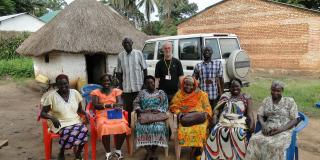
Dr Bob Campbell is currently an e-volunteer education advisor with VSO supporting a project in Mozambique from his home in the UK. But this is just the latest of several volunteering roles he has had with the organisation over more than a decade.
Now retired, Bob spent his professional life in education, initially as a teacher in comprehensive schools and then for 27 years at the University York where he held several senior positions. He is currently an honorary visiting fellow at the University.
During his tenure at the University, Bob was inspired to volunteer with VSO. He has since used his professional experience and skills to support VSO’s programmes in Cambodia, Ethiopia, Mozambique, Myanmar, Nigeria, and South Sudan.
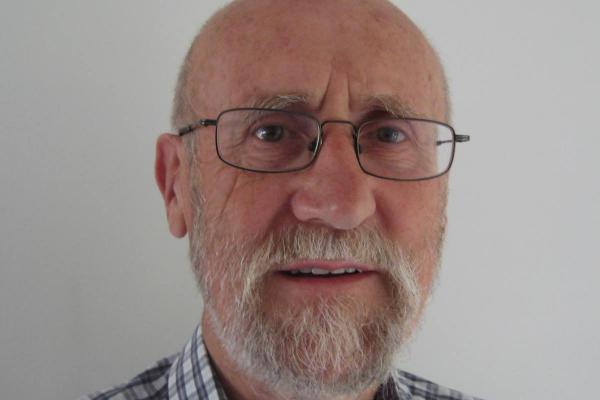
Bob’s commitment to volunteering and service to the community has been recognised with the award of MBE (Member of the Order of The British Empire) in the Queen’s Birthday Honours List in 2018. Here he reflects on his incredible volunteering journey with VSO, its most memorable moments, and the key things it has taught him.
“Most of my career I have spent at the University of York, where I started as a lecturer and finished up as the Head of the Department of Educational Studies. My work had a global dimension as it often involved working with international students and colleagues. I developed links with universities in Eswatini, (formerly Swaziland) Namibia and South Africa.
VSO has always been on my radar and I retired early (aged 60) with the sole purpose of volunteering for the rest of my professional life. Now in my mid 70s my number of completed placements is in double digits. All the places where I’ve worked long-term with VSO were post-conflict countries: either the conflict has been recent, as in South Sudan, or the country was in a reconstruction phase with big ambitions and plans.
Ethiopia
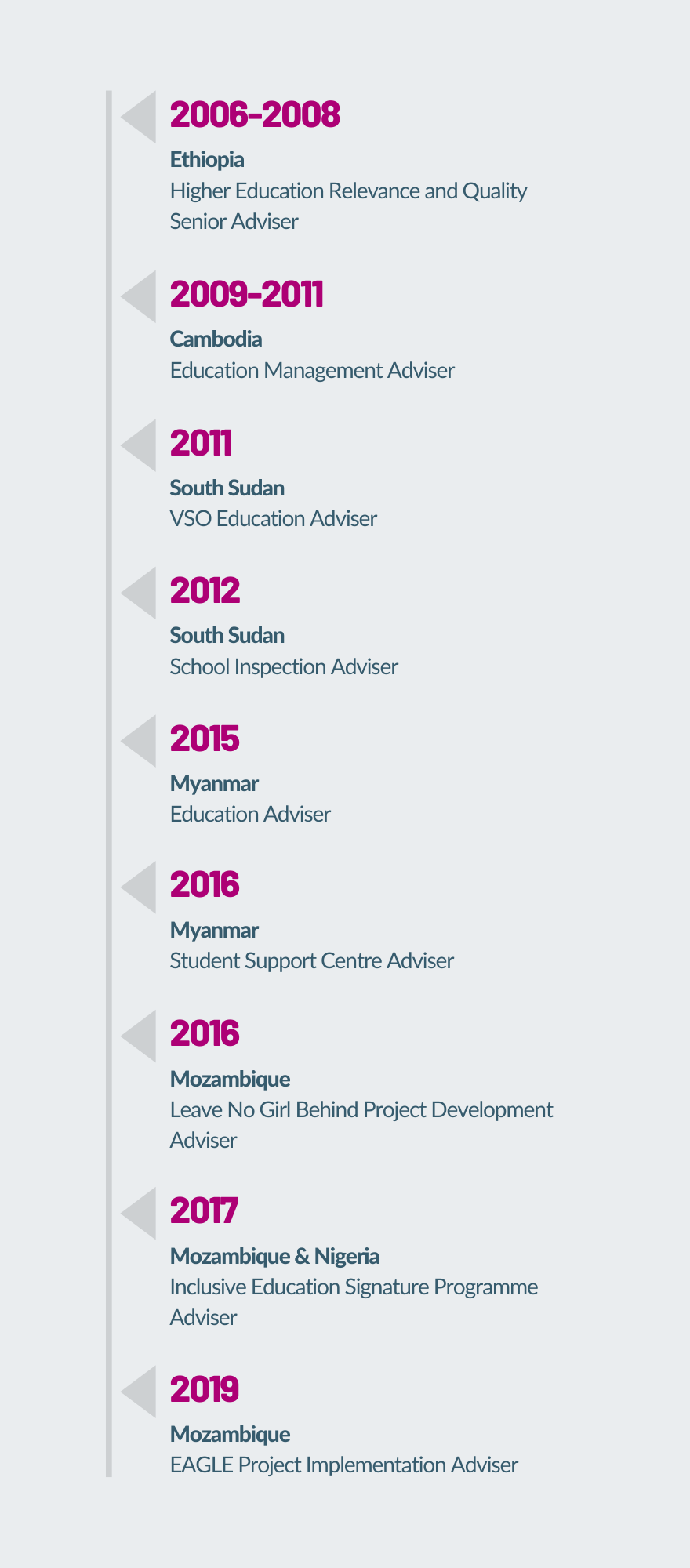
My first placement was in Ethiopia I where I worked for over two years with the Government, helping to develop a system for quality assurance in higher education. This was seen as essential to the development of its increasing number of universities. To do so they set up the Higher Education, Relevance and Quality Agency (HERQA) and required someone with experience of quality assurance to support its development. I was lucky to have been deeply involved in quality assurance, having helped take the University of York through its national quality audit and led the audit for the Education Department.
I was thus well placed to provide expertise, training and reassurance to university principals and senior staff in Ethiopian universities for whom this was a completely new experience. One of the challenges while working on this placement was finding a consensus on reporting on the quality of universities.
We eventually created a system that recognised areas of strength and areas for improvement, rather than a numerical scale. I'm still in touch with HERQA and the quality assurance system that we laid the foundations for is still going strong and continues to be developed and improved over a decade since its inception.
Cambodia
In Cambodia I volunteered as an Education Adviser, for two years, I supported the development of headteachers and their schools through leadership coaching.
My typical day would be at either the Regional Educational office in the small town of Kampot or in the field supporting a cluster of about 30 schools. I visited several schools each week and each school at least one a month, travelling on my motorbike. My motor cycling skills were put to the test as I made these regular visits to rural schools along dirt roads and narrow tracks often in wet and muddy conditions.
I once visited a distant school, where I had arranged to meet the headteacher, but he was not there. He had gone to harvest his rice! This was his most important activity as it would secure food for his family for the months ahead. It was essential to understand that for a teacher, even a headteacher, their main job may not necessarily be the most important thing in their lives. And that's something perhaps we don't always appreciate. Survival comes first, job comes second.
Another memorable moment while volunteering in Cambodia happened when visiting a school with a headteacher who was new to the job but very enthusiastic. The curriculum said that the children should learn to play with a ball (to develop eye and hand coordination) but the school didn’t have any balls and she just couldn't understand why they needed to learn how to play with them.
I managed to find some balls at the market, and we got the children to play ‘catch’ and other games with them. Teachers even came out to watch. There are simple things that we can too often take for granted, but these children got to play with a ball for the first time. Even small things like that can make a huge difference.
South Sudan
In South Sudan, I was one of a small team that helped set up VSO’s activities in the country. This involved visits to towns around the country to meet with local officials and organisations to introduce them to VSO and explore possibilities for volunteer placements. We also had to assess the security of the area and the facilities for possible volunteers such as accommodation, communications, transport, and health care.
I was rather taken by South Sudan and returned for two further 3-month placements to work in the Ministry of Education to support work on school inspection and improvement. These placements in South Sudan gave me a unique experience of working in a new country just months after it gained independence and helping to develop the infrastructure of the education system.
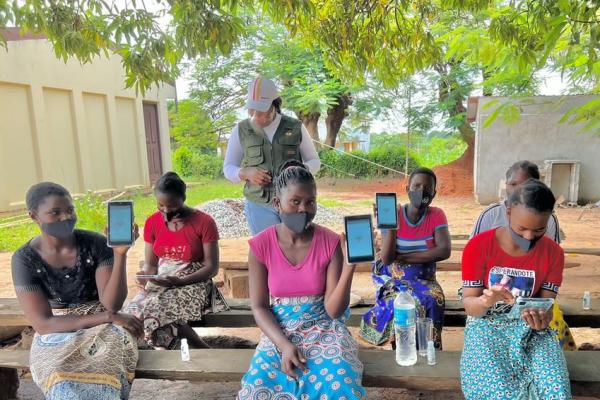
Mozambique
I have completed several short-term placements in Mozambique. I first went there for just a few weeks to help develop a proposal for the funding to continue a UK government project on girls’ education. This led to further placements of several months to help the development and implementation of the EAGLE (Empowering Adolescent Girls to Earn and Learn) Project and my current e-volunteering role.
The EAGLE project supports out-of-school girls and young women to improve their economic prospects. My initial role was fieldwork-based, consulting with school head teachers, young people, families, and community leaders, to help identify the issues limiting young females’ access to education.
From that work there stemmed a project proposal with ideas of how to address the barriers faced by girls to harnessing the benefits of education. While we might help with reading, writing and numeracy, how would that help them in the long run? So, we crafted a two-phase approach.
The first phase is education-focused and provides girls with basic literacy, numeracy, and life skills, while the second phase is centred on livelihoods. They are given the chance to develop skills through which they can earn a living and are introduced to village savings and loans schemes.
Importantly, the Project also addresses gender-based violence, ensures that girls and young women have access to sexual reproductive health services and that their rights are recognised. This requires working with community leaders who are best positioned to raise awareness and positively influence the behaviour of their communities.
I returned from Mozambique just as COVID-19 struck but while the pandemic has required a rethink of the implementation of the project, I am pleased to say that it is forging ahead led by VSO staff, national volunteers and international e-volunteers like myself.
What I’ve learned from my time volunteering with VSO
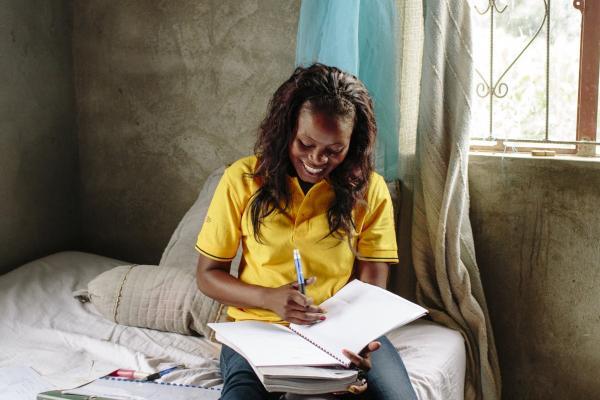
Looking back over my experiences of working overseas as a VSO volunteer for several years, I found the following qualities and personal competencies essential to make my volunteering placements successful and enjoyable.
- Strong communication skills are key. Knowing what to say and how to say it, and sometimes even what language to say it in, is important. The other thing is patience. Big things are mostly not going to happen immediately. It’s useful to remember that you're just someone who's had different experiences that you can share. You need to learn from colleagues’ local context knowledge and experiences, absorbing and incorporating all of that to help the best you can. It's a two-way system.
- The importance of being able to plan flexibly. Rather than sticking to a rigid plan that you have devised, the best way ahead is to know and agree where you all want to reach but be flexible in how to get there. You're all working towards the same end but in your own ways. Sharing knowledge and skills, being collegial and respecting others is crucial.
- One of the other things you learn as a volunteer is that you do not really need a lot of materials things, but my philosophy is, ‘if it's in the market and you really need it then maybe you should buy it, because it might not be in the market tomorrow”.
In all my experience of working with VSO, the local staff and national volunteers were excellent. I've been very appreciative of how supportive, eager to learn and welcoming my colleagues, peers and volunteers have been."
Thinking about volunteering with VSO?
- Those considering volunteering with VSO should remember that they may not be the only person volunteering. If you have a partner or family, they're also volunteering because they may not see you as often. Even if you’re fortunate to enjoy their full support, it’s still important to remember that you're not the only person that's involved in this process, whether it's friends or relations.
- Secondly, do your homework and learn about the countries VSO works in. Think about the countries where you'd like to go, as well as the countries you wouldn't want to go. Also, think about why you want to support a project. Beware of thinking of volunteering as a kind of holiday with a bit of work thrown in – it is not. You'll get some free time, but it is primarily a job that should be approached professionally.
- Lastly, think about what you might do when you come back. Are you having a career break? Are you looking for something in your life to change, and is being a volunteer the best way to do it? Being a volunteer, if it doesn't work out, because you made a bad decision, will have a high cost, both to you, personally and professionally, and possibly economically, to the organisation for yourself and to the partner organisation that you work with. It has to be seen as a serious commitment and approached with sincerity.
VSO recruits experienced international and national professional volunteers. It works to develop people and to develop systems. It really is about sharing skills and changing lives. You aren’t just telling people what to do, you work together with people to drive desirable changes.
Volunteer with VSO
The communities we work in need people like you – teaching and education professionals with experience of:
- school management and leadership
- education in emergencies
- primary and secondary education
- literacy and numeracy
- inclusive education
- disability education
Find your role and apply here
Read more

Transforming lives through education: Geoffrey’s VSO legacy
With a deep belief in the transformative power of education, Geoffrey from Norfolk, UK, has devoted his life both in the UK and abroad to making education more accessible for all.
